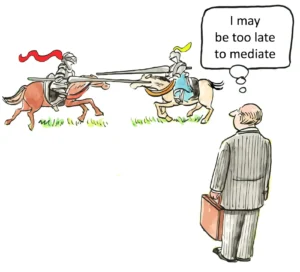The Intersection of Due Process and National Security Concerns
The delicate balance between due process rights and national security concerns represents one of the most profound constitutional challenges in American jurisprudence. When the government acts to protect the nation from threats, it inevitably risks encroaching upon the fundamental liberties that define our constitutional order. This tension has become increasingly prominent in recent years, particularly in light of evolving threats and the government’s expanding surveillance capabilities.
The Constitution does not explicitly prioritize either security or liberty. Rather, it establishes a framework within which these competing values must be reconciled. The Fifth Amendment’s guarantee that no person shall be deprived of “life, liberty, or property, without due process of law” stands as a bulwark against arbitrary government action. Yet the Constitution also empowers the government to “provide for the common defense” and grants the President authority as Commander in Chief. These dual imperatives create an inherent tension that courts, legislators, and executives have struggled to resolve throughout our nation’s history.
Recent developments have brought this tension into sharp relief. The Abrego Garcia case, which reached the Supreme Court in April 2025, exemplifies the complex interplay between executive authority in national security matters and judicial protection of due process. When the government deported Garcia to El Salvador without proper proceedings, it claimed national security imperatives justified circumventing normal procedural protections. The Supreme Court’s unanimous ruling that the government should “facilitate” Garcia’s return highlighted the judiciary’s role in checking executive overreach, even in matters touching on national security.
The Constitutional Foundation of Due Process
The concept of procedural due process traces its lineage to Magna Carta’s promise that no free man would be deprived of rights except “by the law of the land.” This principle found expression in the Fifth Amendment’s due process clause, which applies to federal action, and later in the Fourteenth Amendment, which extends these protections against state action. At its core, due process requires that government action follow fair procedures before depriving individuals of protected interests.
The Supreme Court has consistently recognized that due process is not a fixed concept but rather a flexible one that varies with the particular situation. In Mathews v. Eldridge, the Court established a balancing test that weighs three factors: the private interest affected by official action, the risk of erroneous deprivation through current procedures and the value of additional safeguards, and the government’s interest, including the fiscal and administrative burdens that additional procedural requirements would entail. This framework provides a method for determining what process is “due” in various contexts, including those involving national security.
Beyond mere procedural protections, the Court has also recognized substantive due process rights that limit the government’s power to infringe upon fundamental liberties regardless of the procedures used. These substantive protections are particularly relevant when national security measures threaten to encroach upon core constitutional freedoms. While courts typically defer to the political branches in matters of national security, this deference is not unlimited. Even in times of crisis, the Constitution remains the supreme law of the land, and the judiciary retains its duty to say “what the law is,” as established in Marbury v. Madison.
National Security as a Compelling Government Interest
National security represents perhaps the most compelling interest a government can assert. The primary purpose of government is to protect its citizens from harm, and threats to national security potentially endanger the entire constitutional order. Courts have long recognized that the government must have latitude to address such threats, particularly in emergency situations where delay could prove catastrophic.
The political branches possess constitutional authority and institutional competence in national security matters that courts lack. The President serves as Commander in Chief of the armed forces, while Congress has power to declare war, raise armies, and make rules concerning captures. These textually committed powers suggest a degree of judicial deference to political branch determinations in the national security realm. As the Supreme Court noted in United States v. Curtiss-Wright Export Corp., the President acts as “the sole organ of the federal government in the field of international relations.”
However, this deference has limits. In Hamdi v. Rumsfeld, the Supreme Court rejected the government’s assertion that it could indefinitely detain a U.S. citizen designated as an “enemy combatant” without meaningful review. Justice O’Connor’s plurality opinion acknowledged that while the government has a vital interest in ensuring that those who have fought with the enemy do not return to battle, this interest must be balanced against the risk of erroneous deprivation of a citizen’s liberty. The Court held that due process requires that a citizen-detainee receive notice of the factual basis for his classification and a fair opportunity to rebut those facts before a neutral decision-maker.
The State Secrets Privilege: Shielding National Security Information
One of the most powerful tools in the government’s national security arsenal is the state secrets privilege, a common law evidentiary rule that allows the government to withhold information when disclosure would harm national security. This privilege, formally recognized in United States v. Reynolds, permits the government to block discovery of sensitive information and, in some cases, secure dismissal of litigation entirely.
The state secrets privilege operates as an absolute bar to disclosure once properly invoked. To assert the privilege, the head of the department with control over the matter must personally consider the issue and formally claim the privilege in an affidavit. Courts review these claims with varying degrees of scrutiny but generally show substantial deference to executive assertions about national security risks. This deference reflects both constitutional separation of powers principles and practical recognition of the executive’s superior expertise in national security matters.
Critics argue that the state secrets privilege has expanded beyond its original scope, becoming a tool to shield potentially unlawful government conduct from judicial review. When the government invokes the privilege at the pleading stage to secure dismissal, rather than merely to protect specific evidence during discovery, it effectively places certain executive actions beyond judicial scrutiny. This expansion raises serious concerns about accountability and the rule of law, particularly when the government’s actions allegedly violate constitutional rights.
The tension between legitimate security concerns and the need for accountability was evident in a recent case where the government sought to invoke state secrets to avoid submitting information under oath to a federal judge. The judge noted that the government could not “have it both ways” by publicly making claims while refusing to subject those claims to judicial scrutiny. This standoff illustrates the ongoing struggle to balance security needs with the requirements of due process and judicial oversight.
National Security Letters and Administrative Subpoenas
Among the most controversial national security tools are National Security Letters (NSLs), administrative subpoena instruments used by the FBI to compel disclosure of customer records and other information from businesses. These instruments require no prior judicial approval and typically include gag orders preventing recipients from acknowledging they have received an NSL. The USA PATRIOT Act significantly expanded the FBI’s authority to issue NSLs, leading to tens of thousands of such letters being issued annually.
NSLs raise serious due process concerns because they circumvent traditional judicial oversight mechanisms. Unlike conventional warrants, which require probable cause and judicial approval, NSLs can be issued based on a much lower standard—relevance to an authorized investigation to protect against international terrorism or clandestine intelligence activities. This reduced threshold, combined with the absence of prior judicial review, creates significant potential for overreach.
The gag orders accompanying NSLs compound these concerns by preventing public discussion and scrutiny. Recipients cannot inform customers that their information has been disclosed or publicly advocate for reform based on their experiences. While courts have invalidated some aspects of these gag provisions as unconstitutional prior restraints on speech, modified versions remain in effect. The result is a system of surveillance largely shielded from public view and debate, raising fundamental questions about democratic accountability in the national security context.
Despite these concerns, proponents argue that NSLs provide necessary flexibility and speed in investigating potential threats. Traditional warrant procedures may be too cumbersome when investigating complex terrorist networks or foreign intelligence operations. From this perspective, NSLs represent a reasonable compromise between security needs and privacy interests, particularly given the non-content nature of much of the information sought.
Due Process in Immigration Enforcement and National Security
Immigration enforcement presents a particularly complex intersection of due process and national security concerns. While the Supreme Court has long recognized that Congress has plenary power over immigration, it has also held that non-citizens within U.S. borders are entitled to due process protections. The precise contours of these protections, however, remain contested, especially when national security concerns are invoked.
The Abrego Garcia case has brought these issues to the forefront. When the government deported Garcia without proper proceedings and then refused to facilitate his return despite a court order, it raised fundamental questions about executive compliance with judicial directives in the immigration context. The Fourth Circuit’s strong rebuke of the government’s position—that it could “stash away residents of this country in foreign prisons without the semblance of due process”—reflects judicial concern about potential executive overreach.
Some argue that deportation proceedings are merely administrative actions established by federal legislation rather than constitutional rights. Under this view, Congress has broad authority to establish, modify, or even eliminate procedural protections for non-citizens facing removal. However, this position conflicts with Supreme Court precedent establishing that the Fifth Amendment’s due process protections extend to all “persons” within U.S. jurisdiction, not merely citizens.
The Supreme Court addressed similar issues in Hamdi v. Rumsfeld, holding that even enemy combatants are entitled to due process once brought under U.S. jurisdiction. If wartime detainees receive constitutional protections, then immigrants and asylum seekers within U.S. borders should likewise be entitled to fundamental procedural fairness. This principle applies with particular force when individuals face potential imprisonment in foreign countries without criminal charges—a situation that raises serious humanitarian and constitutional concerns.
Judicial Deference in National Security Cases
Courts have traditionally shown substantial deference to the political branches in national security matters. This deference stems from constitutional separation of powers principles, the political branches’ superior institutional competence in national security affairs, and prudential concerns about judicial interference in sensitive areas. The result is a modified approach to judicial review that gives greater weight to government interests when national security is at stake.
The Supreme Court articulated this deferential approach in United States v. Curtiss-Wright Export Corp., noting the President’s “delicate, plenary and exclusive power” in international affairs. Similarly, in Holder v. Humanitarian Law Project, the Court deferred to executive branch judgments about the national security implications of providing material support to foreign terrorist organizations, even when that support took the form of speech advocating lawful, nonviolent activity.
However, this deference has never been absolute. Even in wartime, the Court has rejected claims of unlimited executive authority. In Youngstown Sheet & Tube Co. v. Sawyer, Justice Jackson’s concurrence established a framework for analyzing executive power that considers whether the President acts with congressional authorization, in the face of congressional silence, or contrary to congressional will. This framework continues to guide judicial analysis of executive national security actions.
More recently, in cases like Hamdi v. Rumsfeld and Boumediene v. Bush, the Court has emphasized that war is not a blank check for the President and that fundamental constitutional protections remain operative even in the national security context. These cases suggest a more assertive judicial role in safeguarding individual rights against security-based encroachments, particularly when core constitutional values are at stake.
Electronic Surveillance and the Fourth Amendment
The digital age has transformed both the government’s surveillance capabilities and the nature of privacy interests protected by the Fourth Amendment. Modern surveillance techniques can collect vast amounts of information with minimal intrusion, challenging traditional Fourth Amendment doctrines that focused on physical trespass. Courts have struggled to apply constitutional principles developed in an analog era to digital surveillance methods that operate at unprecedented scale and with unprecedented secrecy.
The Foreign Intelligence Surveillance Act (FISA) established a legal framework for national security surveillance, creating a specialized court to review surveillance applications. This framework attempts to balance security needs with privacy protections by requiring judicial approval for surveillance of U.S. persons. However, FISA procedures differ significantly from traditional criminal warrant requirements, with lower standards of proof and limited adversarial testing of government claims.
These differences reflect the unique challenges of national security investigations, where threats may be diffuse, evidence fragmentary, and the consequences of inaction potentially catastrophic. Yet they also create risks of overreach, particularly given the secrecy surrounding FISA proceedings and the limited opportunity for targets to challenge surveillance. The result is a system that provides some procedural protections but falls short of the robust due process typically associated with government intrusions on privacy.
Recent technological developments have further complicated this landscape. Bulk data collection programs, revealed by Edward Snowden, raised new questions about the scope of permissible surveillance under both statutory and constitutional constraints. Similarly, advanced analytics and artificial intelligence capabilities enable new forms of surveillance that may not fit neatly within existing legal frameworks. These developments underscore the need for ongoing recalibration of the balance between security and liberty in light of evolving technological realities.
The Role of Congress in Balancing Security and Liberty
While courts play a crucial role in defining constitutional boundaries, Congress bears primary responsibility for establishing the legal framework within which national security activities occur. Through legislation, Congress can authorize certain security measures while imposing constraints that protect individual rights. This legislative function is particularly important given the judiciary’s traditional deference in national security matters.
The USA PATRIOT Act exemplifies this legislative role. Enacted shortly after the September 11 attacks, the Act expanded government surveillance authorities while including some safeguards against abuse. Subsequent legislation, including the USA FREEDOM Act, modified these authorities in response to concerns about overreach, particularly regarding bulk data collection. These legislative adjustments reflect Congress’s ongoing effort to calibrate the balance between security and liberty in light of changing threats and evolving public values.
Congressional oversight also provides an important check on executive national security actions. Through hearings, investigations, and reporting requirements, Congress can monitor implementation of security programs and identify potential abuses. This oversight function complements judicial review by providing a more systematic assessment of security measures than case-by-case adjudication allows.
However, effective congressional oversight faces significant challenges. Classification often limits access to information about security programs, even for members of Congress. Political polarization may undermine bipartisan consensus on appropriate constraints. And the executive branch’s institutional advantages in national security matters—including specialized expertise and operational control—create information asymmetries that complicate legislative supervision. Despite these challenges, congressional engagement remains essential to legitimizing security measures that impact constitutional rights.
Balancing Transparency and Secrecy
Meaningful democratic oversight of national security activities requires some degree of transparency. Citizens cannot evaluate government actions or hold officials accountable without basic information about what those officials are doing. Yet national security often demands secrecy to protect sensitive sources, methods, and operations. This tension between transparency and secrecy presents one of the most difficult challenges in reconciling security imperatives with democratic values.
Courts have recognized legitimate government interests in maintaining secrecy for certain national security information. In CIA v. Sims, the Supreme Court acknowledged that disclosure of intelligence sources could compromise national security and upheld broad agency discretion to protect such information. Similarly, in Department of the Navy v. Egan, the Court recognized executive branch authority over security clearance determinations, noting the President’s constitutional role in protecting classified information.
At the same time, courts have rejected claims that national security concerns automatically trump all other interests. In New York Times Co. v. United States (the Pentagon Papers case), the Supreme Court refused to enjoin publication of classified documents about the Vietnam War, with Justice Black noting that “security” is a “broad, vague generality whose contours should not be invoked to abrogate the fundamental law embodied in the First Amendment.” This decision affirmed that even compelling national security interests must be balanced against other constitutional values.
Finding the appropriate balance requires institutional mechanisms that permit meaningful oversight while protecting truly sensitive information. The FISA Court’s evolution illustrates this challenge. Initially designed as a check on executive surveillance power, the court has been criticized for operating in excessive secrecy and hearing only the government’s side of surveillance applications. Reforms like the appointment of amicus curiae to represent privacy interests aim to introduce greater adversarial testing while maintaining necessary confidentiality.
The Abrego Garcia Case: A Contemporary Test
The ongoing Abrego Garcia case presents a stark test of the judiciary’s willingness to enforce due process requirements in the face of executive resistance justified on national security grounds. When the Supreme Court ordered the government to “facilitate” Garcia’s return to the United States, it reasserted judicial authority to review executive actions affecting individual rights, even in the immigration and national security context.
The government’s response—essentially doing “nothing at all,” according to the district judge—echoes historical instances of resistance to judicial authority, most notably the aftermath of Brown v. Board of Education. Just as Arkansas officials initially defied the Supreme Court’s desegregation ruling, the current administration appears reluctant to comply with the Court’s directive regarding Garcia. This resistance raises fundamental questions about the judiciary’s ability to enforce constitutional constraints on executive power.
The parallels to Cooper v. Aaron are instructive. In that case, the Supreme Court unanimously reaffirmed its authority to interpret the Constitution, declaring that its interpretations bind all government officials. The Court’s assertion that “the federal judiciary is supreme in the exposition of the law of the Constitution” established a principle that has been a cornerstone of our constitutional system. Today’s Court faces a similar challenge: either reaffirm this principle of judicial supremacy or surrender constitutional interpretation to executive discretion.
The stakes in this confrontation extend beyond Garcia’s individual case. If the executive can defy judicial orders by invoking national security, it threatens the fundamental separation of powers that protects individual liberty. As the Fourth Circuit warned, if the government can deport individuals without due process and in disregard of court orders, what prevents it from deporting American citizens or targeting political enemies? These concerns underscore the importance of maintaining judicial authority to enforce constitutional constraints, even in matters touching on national security.
Principles for Reconciling Due Process and National Security
The tension between due process and national security does not admit of easy resolution. No single formula can determine the appropriate balance in all circumstances. However, certain principles can guide this reconciliation, ensuring that security measures respect constitutional values while remaining effective against genuine threats.
First, procedural protections should be calibrated to the severity of the potential deprivation. When government action threatens core liberty interests—such as physical detention or permanent banishment from the country—robust procedural safeguards are essential. The Supreme Court recognized this principle in Hamdi, holding that citizens designated as enemy combatants must receive notice and an opportunity to be heard before a neutral decision-maker. Similar protections should apply whenever individuals face severe deprivations, regardless of citizenship status.
Second, judicial review should focus on the adequacy of procedures rather than the substance of national security judgments. Courts lack the expertise and constitutional authority to second-guess tactical security decisions. However, they can and should ensure that such decisions result from fair procedures that consider relevant evidence and provide affected individuals an opportunity to challenge adverse determinations. This procedural focus respects both security imperatives and constitutional values.
Third, security measures should be narrowly tailored to address specific threats rather than imposing broad restrictions based on group characteristics. Measures targeting individuals based on race, religion, or national origin raise serious equal protection concerns and often rest on flawed assumptions about risk. More precise approaches that focus on specific behaviors or evidence of individual dangerousness better reconcile security needs with constitutional principles.
Fourth, sunset provisions and periodic review requirements can mitigate the risk that temporary security measures will become permanent fixtures. Emergency powers granted during crises tend to persist long after the immediate threat subsides. By requiring reauthorization at regular intervals, Congress can ensure that extraordinary measures remain justified by current circumstances rather than institutional inertia.
Finally, meaningful oversight requires multiple layers of review, including internal executive branch controls, congressional supervision, and judicial enforcement of constitutional boundaries. Each institution brings different perspectives and competencies to the oversight function. This multilayered approach provides redundant protections against overreach while allowing flexibility to address genuine security threats.
Conclusion: Maintaining Constitutional Values in Challenging Times
The intersection of due process and national security concerns presents one of the most profound challenges in constitutional governance. When faced with threats to national security, government officials naturally seek maximum flexibility to protect the nation. Yet our constitutional system is premised on the understanding that unchecked power inevitably leads to abuse, even when wielded with the best intentions.
The current confrontation over the Abrego Garcia case echoes previous constitutional crises where the judiciary’s authority to enforce constitutional constraints faced challenge. Just as the Supreme Court in Cooper v. Aaron unanimously reaffirmed judicial supremacy in constitutional interpretation, today’s Court must decide whether to defend its role as guardian of constitutional rights or acquiesce to executive claims of unreviewable authority in national security matters.
This choice has implications far beyond any single case. If the judiciary cannot enforce due process requirements when the executive invokes national security, constitutional protections become mere suggestions rather than binding constraints. The result would be a fundamental alteration of our constitutional order, with individual rights subject to executive discretion rather than judicial protection.
History teaches that liberty and security are not always in tension. A system that respects constitutional rights while addressing genuine threats enhances both values. Due process protections improve decision-making by ensuring consideration of relevant evidence and reducing the risk of error. Judicial review provides accountability that maintains public confidence in security measures. And respect for constitutional values reinforces the democratic principles that security measures aim to protect.
As we navigate the complex challenges of modern security threats, we would do well to remember Justice Jackson’s warning in Youngstown: “With all its defects, delays and inconveniences, men have discovered no technique for long preserving free government except that the Executive be under the law, and that the law be made by parliamentary deliberations.” This principle remains our surest guide for reconciling security imperatives with the constitutional values that define our nation.
Citations:
- Supreme Court’s Unified Voice in Constitutional Crises
- Discussion on Deportation Rights and Legal Challenges
- J.G.G. v. Trump Emergency Motion Response Order
- Deportation Hearings Are Not Constitutional Rights
- First Amendment and National Security Limitations
- Buffalo Law Review Article on Security and Liberty
- Balancing Civil Liberties and National Security Resolution
- State Secrets Privilege Fact Sheet
- Hamdi v. Rumsfeld Case Analysis
- Due Process and Rights of the Accused Lesson Summary
- Research on National Security and Constitutional Rights
- Academic Paper on Due Process in National Security Context
- Scholarly Analysis of Security-Liberty Balance in Courts
- Research on Constitutional Protections During Security Threats
- Discussion on Presidential Attempts to Dismantle Constitutional Protections
- Law Professor Steve Vladeck’s AMA on National Security
- ACLU Policy Lead on Technology and Civil Liberties AMA
- Discussion on Constitutional Privacy Rights Origins
- Debate on National Firearms Act Constitutionality
- Who Determines What Constitutes a National Security Issue
- Military Discussion on Unlawful Orders and Duty
- Conservative Perspectives on Due Process Importance
- Judge Warns of Consequences for Trump Administration
- Constitutionality of Red Flag Gun Laws Discussion
- Is Denying Due Process Constitutional Violation
- Why NSA Surveillance Continues Despite Constitutional Questions
- JD Vance’s Position on Immigration Due Process
- Opinion: Constitution as Threat to National Security
- Limitations on Due Process Rights in National Security
- 14th Amendment Due Process Clause Analysis
- How Due Process Protects Against Governmental Overreach
- FISA Court vs. Constitutional Protections
- Roger Williams University Law Review on Security Issues
- Fourth Amendment and National Security Considerations
- Due Process Under US Constitution vs. International Law
- Due Process Clause Wikipedia Article
- Tangled History of the State Secrets Privilege
- National Security Letters Wikipedia Article
- Hamdi v. Rumsfeld Supreme Court Case
- Problems with the FISA Court System
- Mathews Test for Due Process Analysis
- Fourth Amendment National Security Searches Analysis
- Research on Balancing Security and Constitutional Rights
- Academic Study on Due Process in National Security Context
- Scholarly Analysis of Judicial Review in Security Cases
- Research on Constitutional Limitations During Security Threats
- Academic Paper on Executive Power in National Security
- Medical Research on Security Policy Legal Implications
- Conservative Discussion on Civil Liberties Erosion
- Lack of Evidence Against Mahmoud Khalil Case




















